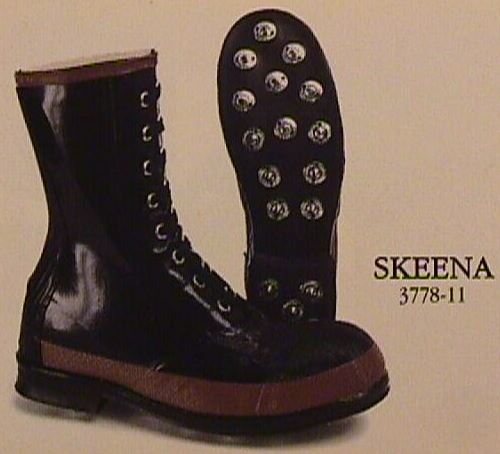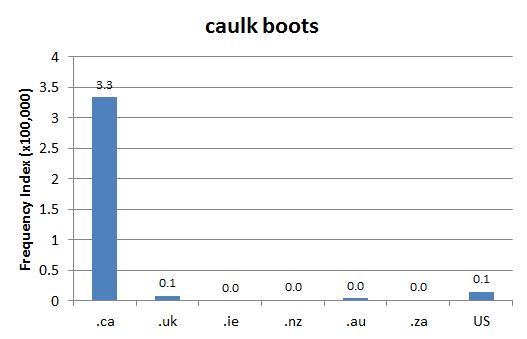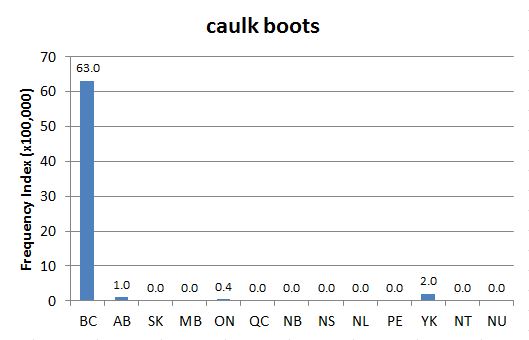DCHP-2
cork boot corked boot, caulk(ed) boot, calk boot, cork shoe DCHP-2 (March 2016)
n. — Forestry, BC and US Pacific Northwest
a boot with a spiked sole traditionally used by loggers.
Type: 5. Frequency — Loggers use boots with spikes, "caulks," in the soles to prevent slipping on wet or sloping logs (see Image 1). The spelling "cork" in cork boot comes from a misinterpretation. Many British English speakers would pronounce the word "cork" as "caulk," a pronunciation that derives from their "non-rhotic" or [r]-less dialect. When such speakers said "caulk," North American English speakers simply assumed they had said "cork" and wrote it that way. "Cork" is documented as an "erroneous" spelling of "calk", "caulk" throughout the 19th century (DAE, s.v. "Cork" n2).
The use of "cork" as an alternative to "caulk" has an analogue in the term khaki, reported by Avis (1956:43-4): Canadians who had heard the term used by non-rhotic British dialect speakers, such as soldiers in World War I, began to spell khaki as karki and pronounced it with the [r], assuming the British English speaker was silencing the [r]. Dropping the [r] sound after a vowel is a feature of the Standard British dialect.
While the term is also used in the US logging industry, it is far more prevalent in Canada (see Chart 1). DARE (s.v. "cork" (n3)) lists its earliest American attestation from 1950 and labels cork boot as "chiefly Northern US". In Canada, use of the term is most prevalent in BC (see Chart 2).
See also COD-2, s.v. "cork boot", which is marked "Cdn (BC)".See also: caulked boot with various crosslinks logan khaki
- The most prevalent spelling today varies between "cork" and "caulk". See caulked boot for other forms and past uses.
References:
Images:
Image 1: Cork boot from Shoe King (Hamilton, Ontario).
Source: http://laci.hostcentric.com/c0146.html (5 May 2014)
Chart 1: Internet Domain Search, 13 Mar. 2014 ("cork boot" was not feasibly searchable)
Chart 2: Regional Domain Search, 13 Mar. 2014 ("cork boot" was not feasibly searchable)


